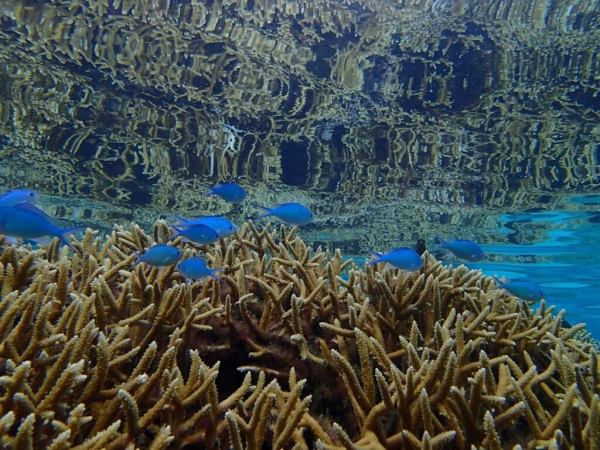How can we boost the resilience of the world’s coral reefs, which are imperiled by multiple stresses including mass bleaching events linked to climate warming?
One strategy advocated by some researchers, resource managers and conservationists is to restore populations of algae-eating reef fish, such as parrotfish. Protecting the fish that keep algae in check leads to healthier corals and can promote the recovery of distressed reefs, according to this idea, which is known as fish-mediated resilience.
But a new study that analyzed long-term data from 57 coral reefs around the French Polynesian island of Mo’orea challenges this canon of coral reef ecology.
The study, published online Oct. 3 in the journal Nature Ecology & Evolution, provides compelling new evidence that fish don’t regulate coral over time, according to University of Michigan marine ecologist and study co-senior author Jacob Allgeier. The other author is former U-M postdoctoral researcher Timothy Cline.
Read more at University of Michigan
Image: Bright blue Chromis fish on acropora coral at a back reef on the French Polynesian island of Mo’orea. (Image credit: Kelly Speare)


